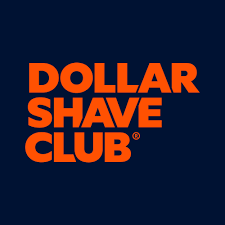Dreaming of launching your own business or side hustle? One of the biggest challenges for any entrepreneur is figuring out what exactly to offer. This is where niche markets come in. Niche marketing is a strategic approach that can empower your venture and help you increase your chances of success.
In this guide, we will explore the concepts in detail, including why they matter and how they are ideal for your unique skills and vision.
But before you get started, here’s a little tip: Once you figure out your niche market, try platforms like Social Champ to streamline your marketing.
Let’s get started!
Own Your Niche on Social Media With Social Champ
Schedule, analyze, and engage your niche audience seamlessly with Social Champ. Take control of your social media presence and watch your community thrive.
What Is a Niche Market?
A niche market is a specialized segment within a larger market. It caters to a specific group of people with distinct needs or interests. They often focus on a particular:
- Product
- Service
- Group of people
Why are niche markets important?
Targeting a niche market offers several advantages:
- Less competition: Standing out is easier in a smaller crowd.
- Loyal customers: Customers value the specialized offerings, leading to strong brand loyalty.
- Targeted marketing: Precise marketing efforts lead to higher engagement and sales.
Finding your niche requires introspection and research. Look for the sweet spot where your interests and skills intersect with unaddressed customer needs.
Here’s how to get started:
Reflect on your passions and expertise. What are you good at, and what ignites your curiosity?
Research the market. Look for gaps where your skills or interests could provide solutions.
Validate your niche. Is there a sufficient customer base to support your venture?
Remember, a niche market isn’t just about being small; it’s about understanding a specific group deeply and offering them unique value.
How to Reach a Niche Market
When you select a niche marketing approach for your business, it is essential to determine how to identify a niche market.
- Start With What You Know
Begin your search for a niche market with what you’re familiar with. This could be a field you’ve worked in, a hobby, or a need you’ve noticed that needs to be met.
- Do Lots of Research
Do extensive market research to understand the problems and wants of your potential niche market. Use surveys, focus groups, and social media listening tools to collect information and determine whether your ideas are in demand.
- Use Data to Make Decisions
Use data analysis to support your findings. Look for clear trends and signs that your niche market is possible and profitable.
Making the Perfect Niche Marketing Plan
Now that you have selected your niche market, it is time to devise the perfect marketing plan for your selected customer group.
- Find Your Unique Selling Point (USP)
Your USP is what makes you different from your competitors. Find out what makes your product or service unique and meets the needs of your niche market.
- Content Is Important
Make high-quality, niche-focused content that teaches, entertains, and engages your audience. Content marketing is a powerful tool for building your brand and engaging with your community within your niche market.
- Make It Personal
The secret to winning over a niche market is personalization. Customize your messages, products, and customer experience to the specific interests of your niche audience.
- Use Many Channels
Use an omnichannel marketing approach to reach your niche market. This means using social media marketing, email campaigns, content marketing, and other relevant channels.
- Form Strategic Partnerships
Work with influencers, other businesses, or organizations that already have connections in your niche market. Partnerships can give you credibility and greatly increase your reach.
- Use SEO and SEM
Make sure your business is easy to find online by those searching within your niche. Create content using keywords related to your niche market, and consider using paid advertising through search engine marketing (SEM).
Related Article: The Top Influencer Marketing Platforms for Businesses in 2024
Building and Keeping Relationships
Attracting one-time customers shouldn’t be your goal. Instead, aiming for a returning customer who loves and trusts your brand is more significant. Building long-term relationships with your target market lets you achieve that. Here’s how to do it:
- Focus on Customer Service
Provide excellent customer service for your niche market to give you a competitive edge and create loyal customers.
- Build a Community
Build a community around your brand and niche market. This could involve hosting events, creating online or offline forums, or other initiatives that bring people with similar interests together.
- Collect and Use Feedback
Regularly ask for customer feedback and use this information to improve your products and the customer experience.
Checking Success in Your Niche
The next and equally important step is keeping tabs on the progress of your marketing strategies.
- Follow Key Performance Indicators (KPIs)
Decide on the most critical KPIs for your niche market. This could be customer satisfaction scores, how often customers make another purchase, or how engaged they are with certain content or channels.
- Change and Grow
Be ready to change your strategies and products based on market changes and feedback. Growing in your niche market is important for long-term success.
- Celebrate Success
Remember to celebrate your wins, no matter how big or small. This can create a feeling of community and success in your niche market.
How to Assess Your Niche Market Ideas
After conducting thorough research and identifying several potential niche markets, assessing their feasibility is crucial. Here’s a detailed approach:
Analyze the Competition
Begin by investigating companies already operating within your intended niche. Evaluate the market’s competitiveness. Are there dominant market leaders, and if so, do they hold sway over all aspects of the niche? According to HubSpot, understanding the existing competition in your niche is vital because it helps you identify gaps that your business can fill.
Trial Run
Develop a Minimum Viable Product (MVP) or conduct a small-scale test to gauge the response of your niche market. This could be a simplified version of your product or service, allowing you to collect genuine feedback and make necessary adjustments before a full-scale launch. As suggested on LinkedIn, surveys, interviews, or engagements in forums can be effective ways to better understand your niche.
Estimate Market Potential
Undertake market sizing to comprehend the potential reach of your niche. Determine how many individuals or businesses could benefit from your offerings. What is the projected growth of this market segment? This information will help you plan your marketing effectively.
Benefits Of Niche Market
Niche marketing has several benefits, including the following:
- Less Competition: In a niche market, there are fewer businesses doing the same thing. This means less competition, which allows businesses to become stronger and possibly make more profit.
- More Loyal Customers: When a business meets customers’ specific needs, those customers are usually more satisfied and loyal. This means they stay with the company longer, so the business doesn’t have to keep finding new customers.
- Easier Understanding of Customers: It’s easier for businesses to understand their customers in a smaller market. This helps them to communicate better with their customers and understand how to serve them best.
- Better Use of Marketing Money: With niche markets, businesses can target their marketing more precisely. This means they can use their marketing money more wisely by reaching the customers who are most likely to buy their products or services.
- Chance to Become an Expert: By focusing on one area, businesses can become experts in their niche. This helps them to build trust and become a respected authority in the market.
- Ability to Change and Innovate: Niche businesses can be more flexible, allowing them to respond faster to changes in the market and always come up with new ways to meet the changing needs and preferences of their customers. So, niche marketing has many benefits, showing why it’s a very important strategy for businesses today.
Niche Marketing Strategies
To fully use niche marketing, businesses need strategies that match the unique aspects of their chosen niche market.
Study a Lot
It’s very important to study and understand a niche market. This involves looking at what customers do, studying other businesses, and making sure there’s a good market for the unique product or service.
Make Products for the Niche
The main idea of niche marketing is to make products that meet the needs of the niche market. This could involve making changes to products, personalizing them, or creating new products and services that match what the audience likes.
Customize Marketing and Messages
Once products are ready, the marketing message should match the niche audience. The right content, campaigns, and channels should be chosen to reach the target market effectively.
Create Brand Identity
In niche marketing, brand identity is very important. Brands need to create an image that shows the values and goals of their niche audience, using words and pictures they can connect with.
Use Technology
Technology can be a big help in niche marketing, from online platforms that sell specialized products to social media targeting technologies that can reach the right audience accurately.
Connect with the Community
Niche markets often have communities of people who think alike. Connecting with these communities through social media, events, or partnerships can help build relationships and grow the brand’s presence in the niche.
By using these tactics smartly, businesses can set themselves up for success in their chosen niche market, taking advantage of the benefits that come with a focused, targeted approach.
Niche Marketing Examples
Let’s take a look at some brands that have leveraged niche marketing.
Paxton Pet Goods

Paxton Pet Goods Paxton Pet Goods is a family business located in the Pacific Northwest. It was founded by Sarah Paxton, who saw a chance to make high-quality, natural products for pet’s health. Sarah’s dog had allergies, which led her to make grain-free, organic treats. She first shared these with friends and family. The response was so good that it gave her the confidence to start her business, serving pet owners who wanted natural solutions for their pet.
Niche Terrain: Challenges and Strategies
One big challenge for Paxton Pet Goods was teaching potential customers about the benefits of their products in a market full of traditional pet foods and treats. To tackle this, Sarah used content marketing a lot, creating blog posts and social media content that showed off her products and gave helpful information on pet health and nutrition.
To make her brand stand out, Sarah worked with local pet stores, offering events and education sessions in the stores. This helped her products reach more people and made partnerships that improved her brand’s reputation.
Scaling the Niche: Growth and Expansion
Paxton Pet Goods’ growth depended on keeping its niche focus while adding more pet care products. By paying attention to what customers said and what was happening in the market, they brought out new products that went well with their original line, like natural grooming supplies and supplements.
With a strong focus on quality and customer education, Paxton Pet Goods built a loyal customer base that acted as brand supporters. Their success with this approach has led to their products being sold in big pet retail chains and even the start of an online site that serves pet lovers worldwide.
Thrive Yoga

Thrive Yoga Thrive Yoga Studio isn’t your average yoga center. Founded by Alessia Marino, it caters to a niche in NYC’s bustling scene. It offers comprehensive wellness for mind and body.
Building a Supportive Community
Thrive started with a variety of yoga styles, adding workshops on meditation, nutrition, and other wellness aspects. Marino’s goal: create a supportive community for personal growth.
Weekly social events like potlucks fostered connections, while providing valuable feedback on their approach.
Growth Through Personalization
Thrive’s reputation grew, attracting students citywide and beyond. They expanded their space and added instructors passionate about holistic wellness.
But their success lies in deep connections, not mass appeal. Personalized attention ensures their niche stays focused on unique experiences.
Rothwell Robotics
Rothwell Robotics found a special opportunity that mixed education with new ideas. The founder, Dr. Emily Rothwell, who used to be a STEM teacher, imagined a program that didn’t just teach robotics but focused on making a fun and easy way for kids to get involved with technology and engineering from a young age.
Rothwell Robotics started as an after-school program, teaching elementary and middle school students about the basics of robotics through hands-on projects and games. Their method mixed serious education with a fun environment, ensuring students learned while having fun.
Rothwell Robotics didn’t just stick to school programs; they also reached out to communities with less opportunity, offering their classes on a scholarship basis. This gave children important STEM skills and increased their social impact, getting support from local and national sponsors.
Balancing New Ideas and Old Ways
A big part of Rothwell Robotics’ appeal was their ability to balance new technology with the familiar. As robotics became a bigger field, Emily’s team kept updating their curriculum, keeping it relevant and interesting.
At the same time, they used traditional outreach methods, participating in community events and holding open houses where parents and students could learn more about their programs, making sure the human touch stayed at the heart of their robotics education.
Dollar Shave Club

Dollar Shave Club Dollar Shave Club is a well-known company in Venice, California. They are famous for their special way of selling men’s grooming products. The company saw a unique chance in the busy market of men’s grooming: they offer high-quality razors at a low price, and they send them to your home when you subscribe to their service.
Their smart business model gives customers the benefit of not having to keep buying new razors all the time and always having a new blade when needed. This special feature has helped Dollar Shave Club create its place in a very competitive market.
But Dollar Shave Club doesn’t just sell razors. It has added more personal grooming items to its product line so customers can buy all their grooming needs from one place. Its products are available not only online but also in stores, making it even easier for customers to buy them.
An important part of Dollar Shave Club’s success is its brand personality. They are known for their funny and joyful marketing, which has helped them build a strong bond with their customers. This strong brand identity, together with their focus on making things easy for customers and offering quality products, has led to a loyal following.
Dollar Shave Club’s ability to find and serve a specific group of customers has been key to its success. By offering good-quality, low-cost razors through a handy subscription service, they have made a name for themselves in the busy market of men’s grooming products. Their success story is a great example of how powerful it can be to find and serve a specific group of customers.
These niche marketing examples are the inspiration for many businesses.
Wrapping Up
Knowing about niche markets is important for businesses in 2024. A niche market is a particular customer group that wants specific things. This helps businesses to focus on these customers, build good relationships with them, and become experts in that area.
To find a niche, companies need to do some homework. They need to look at what people want, how many other companies are doing the same thing, and what they are good at. If you’re starting a new business or if you already have a business and want to grow, finding your niche can make a big difference. This way, you can have your special part of the market, make your customers happy, and help your business do well.

















